Reading Skills
Support your child’s literacy development with our Reading Skills Home Therapy Resources. Designed for all levels, these tools enhance phonemic awareness, fluency, comprehension, and vocabulary, making reading fun and effective.

Explore the Best Reading Skills Resources for Kids
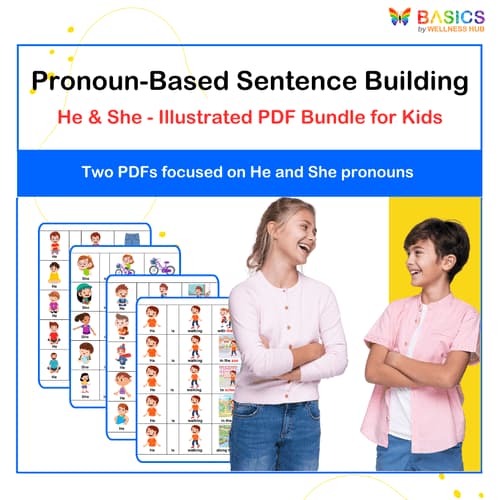
Pronoun-Based Sentence Building: He & She - Illustrated PDF Bundle for Kids
FREE
₹320
100% off
4.9 (48 ratings)
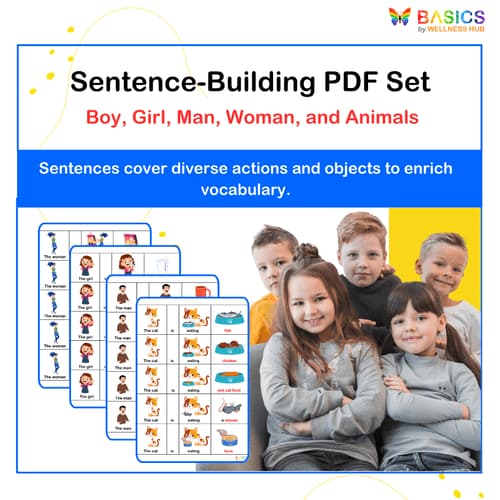
Sentence-Building PDF Set: Boy, Girl, Man, Woman, and Animals
₹ 240.00
₹ 480.00
50% off
4.8 (44 ratings)
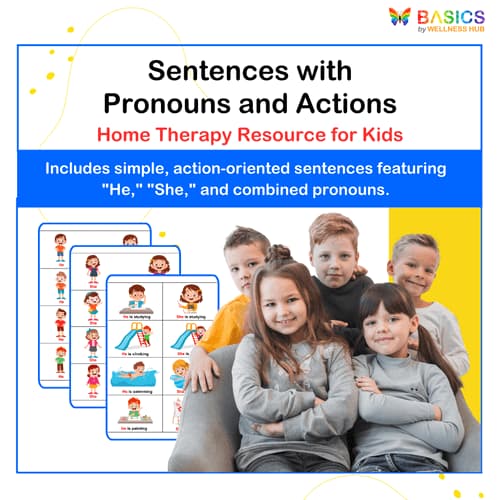
Sentences with Pronouns and Actions Home Therapy Resource for Kids
₹ 160.00
₹ 240.00
33% off
4.7 (58 ratings)
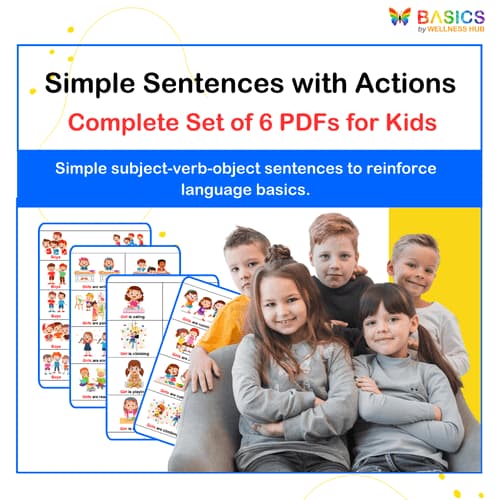
Simple Sentences with Actions: Complete Set of 6 PDFs for Kids
₹ 240.00
₹ 480.00
50% off
4.6 (54 ratings)
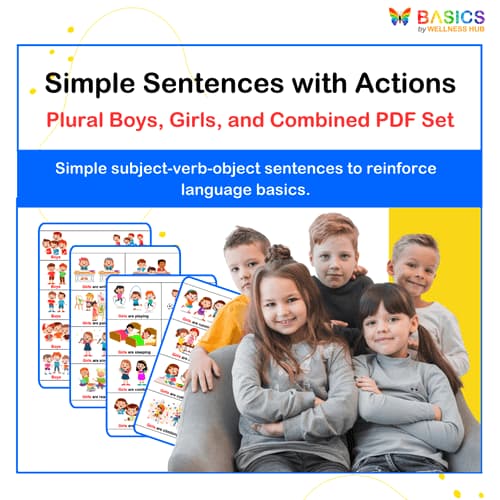
Simple Sentences with Actions: Plural Boys, Girls, and Combined PDF Set
₹ 160.00
₹ 320.00
50% off
4.9 (50 ratings)
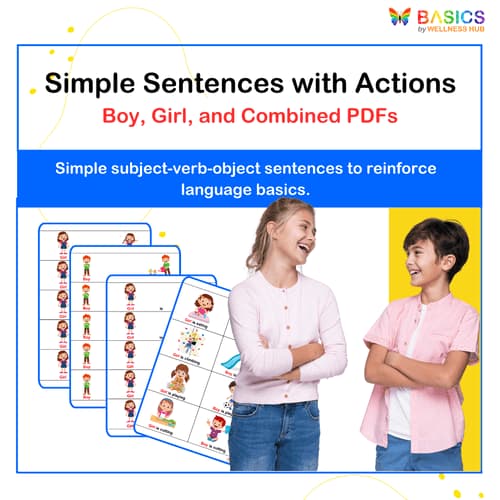
Simple Sentences with Actions: Boy, Girl, and Combined PDFs
₹ 160.00
₹ 320.00
50% off
4.8 (46 ratings)
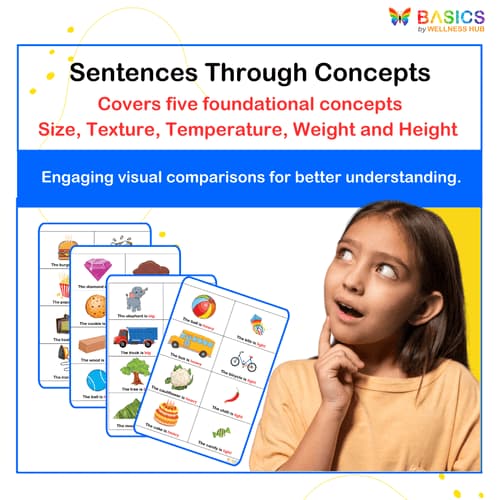
Learning Sentences Through Concepts: Illustrated PDFs for Kids
₹ 160.00
₹ 320.00
50% off
4.7 (42 ratings)
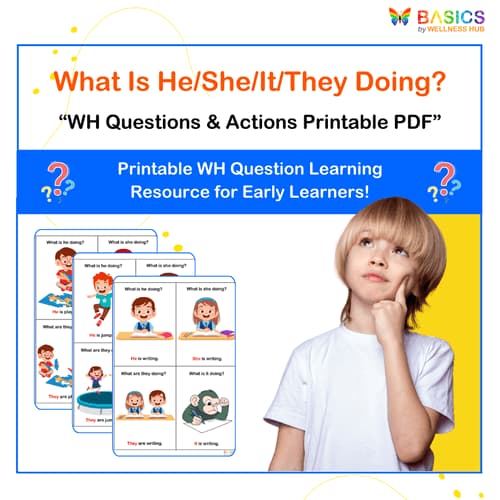
What Is He/She/It/They Doing? WH Questions & Actions Printable – Sentence Building for Kids
₹ 80.00
₹ 160.00
50% off
4.7 (48 ratings)
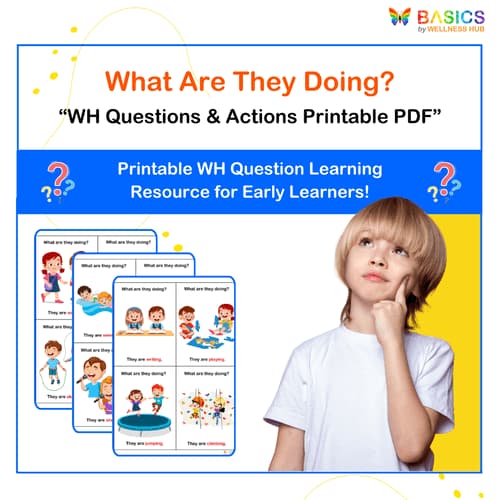
What Are They Doing? WH Questions & Actions Printable – Sentence Building for Kids
₹ 80.00
₹ 160.00
50% off
4.6 (44 ratings)
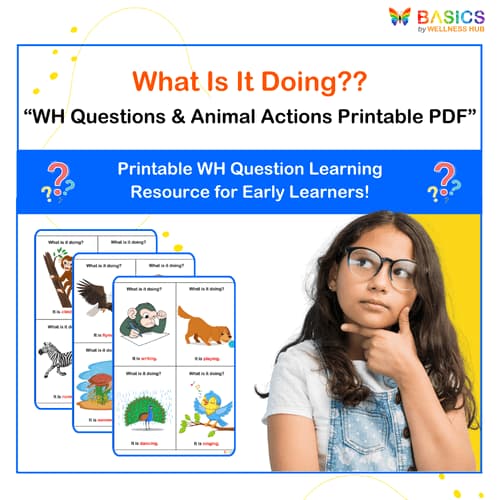
What Is It Doing? WH Questions & Animal Actions Printable – Fun Learning with Animals
₹ 80.00
₹ 160.00
50% off
4.9 (58 ratings)
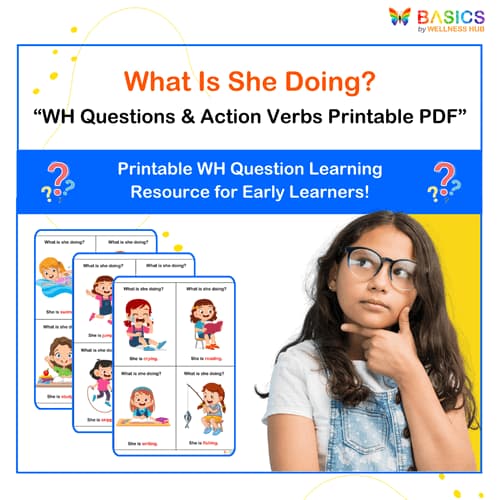
What Is She Doing? WH Questions & Action Verbs Printable – Learn Verbs & Sentence Formation
₹ 80.00
₹ 160.00
50% off
4.8 (54 ratings)
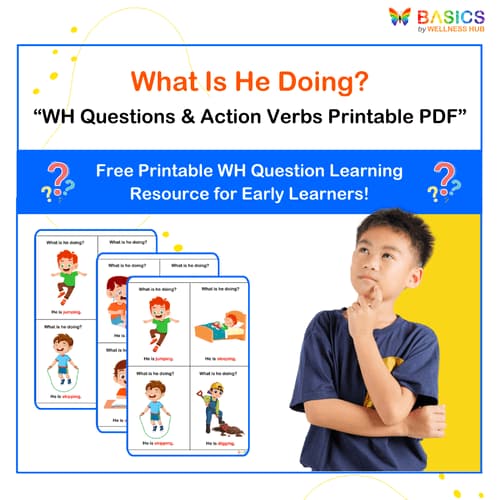
What Is He Doing? Action Words Printable – Learn Verbs & WH Questions
₹ 80.00
₹ 160.00
50% off
4.7 (50 ratings)
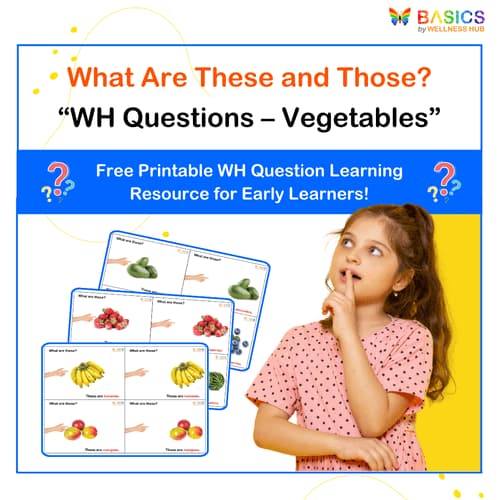
What Are These and Those? WH Questions – Vegetables (Free Printable PDF)
FREE
₹160
100% off
4.6 (46 ratings)
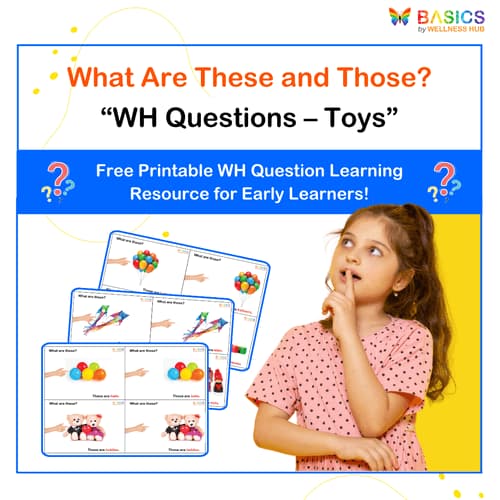
What Are These and Those? WH Questions – Toys (Free Printable PDF)
FREE
₹160
100% off
4.9 (42 ratings)
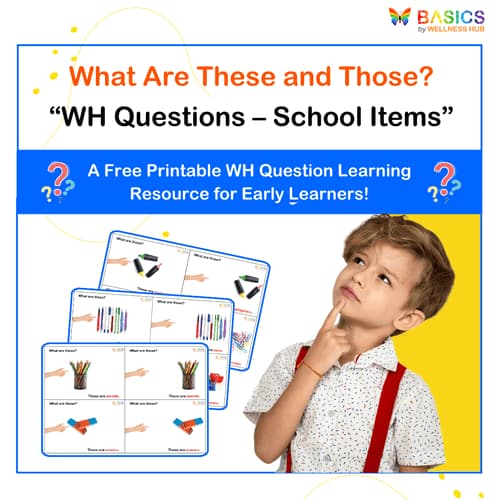
What Are These and Those? WH Questions – School Items (Free Printable PDF)
FREE
₹160
100% off
4.8 (60 ratings)
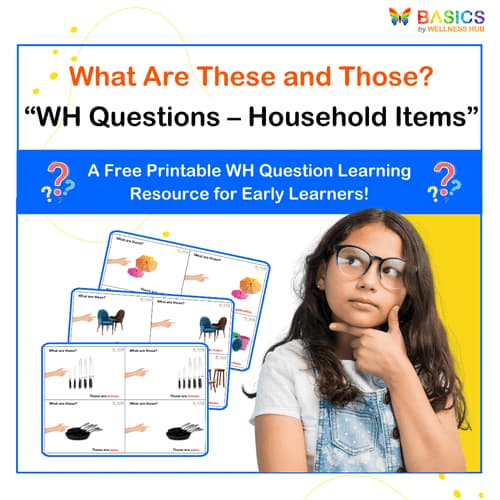
What Are These and Those? WH Questions – Household Items (Free Printable PDF)
FREE
₹160
100% off
4.7 (56 ratings)
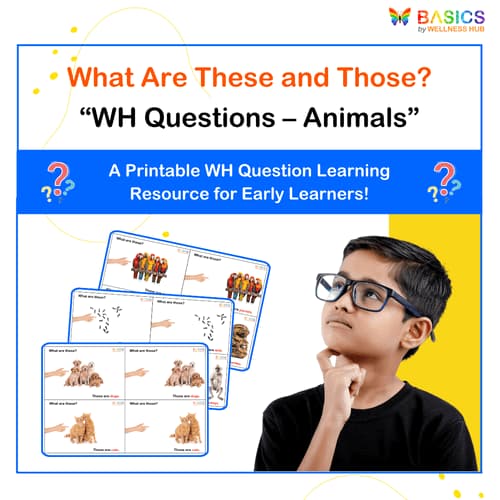
What Are These and Those? WH Questions – Animals (Printable PDF)
₹ 80.00
₹ 160.00
50% off
4.6 (52 ratings)
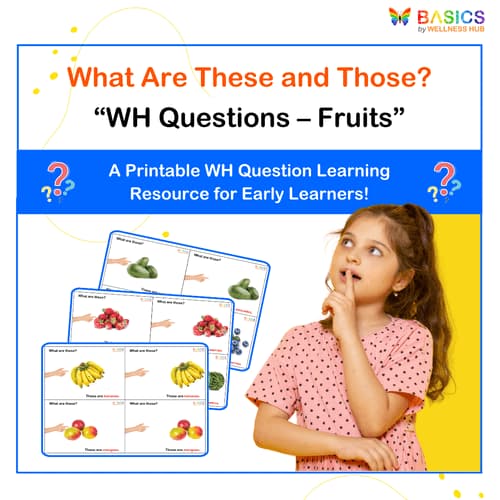
What Are These and Those? WH Questions – Fruits (Printable PDF)
₹ 80.00
₹ 160.00
50% off
4.6 (52 ratings)
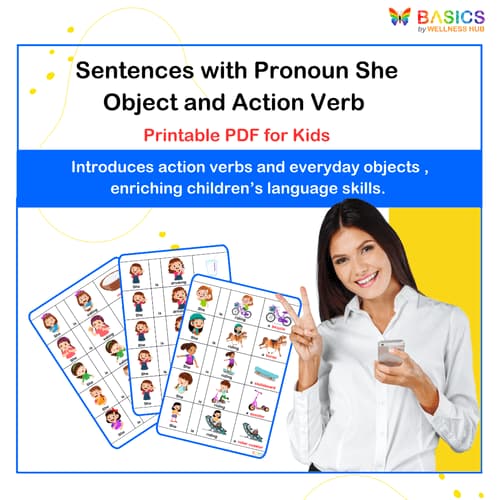
Sentences with Pronoun She: Object and Action Verb - Illustrated PDF for Kids
₹ 80.00
₹ 160.00
50% off
4.6 (60 ratings)
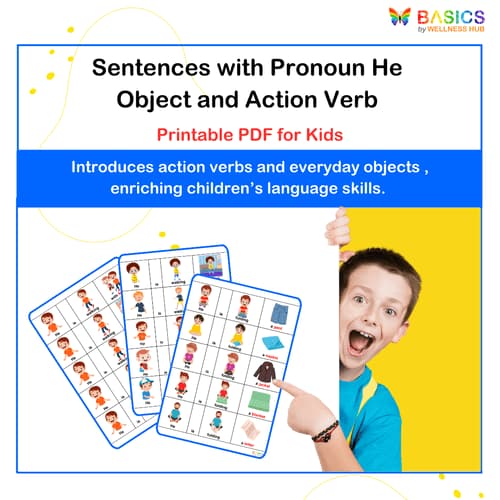
Sentences with Pronoun He: Object and Action Verb - Illustrated PDF for Kids
₹ 80.00
₹ 160.00
50% off
4.9 (56 ratings)
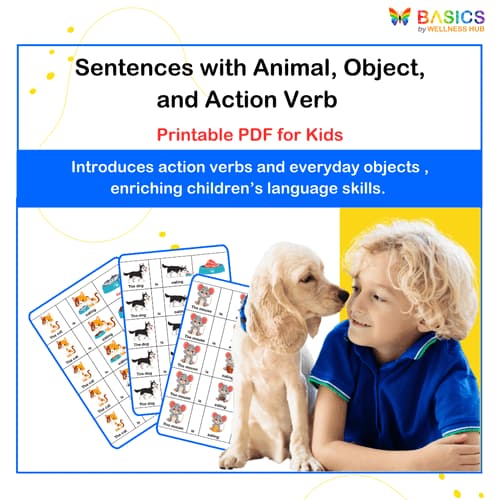
Sentences with Animals, Object, and Action Verb: Illustrated PDF for Kids
₹ 80.00
₹ 160.00
50% off
4.8 (52 ratings)
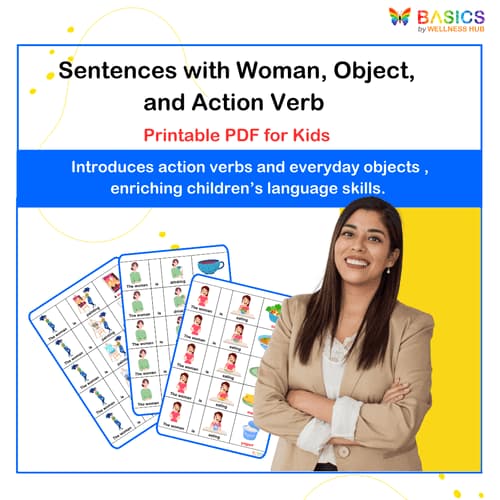
Sentences with Woman, Object, and Action Verb: Illustrated PDF for Kids
₹ 80.00
₹ 160.00
50% off
4.7 (46 ratings)
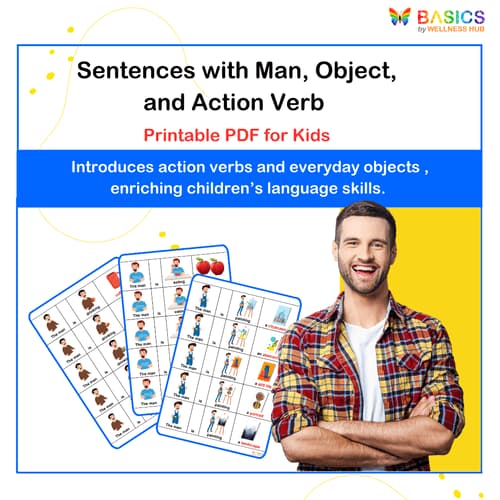
Sentences with Man, Object, and Action Verb: Free Illustrated PDF for Kids
FREE
₹160
100% off
4.6 (42 ratings)
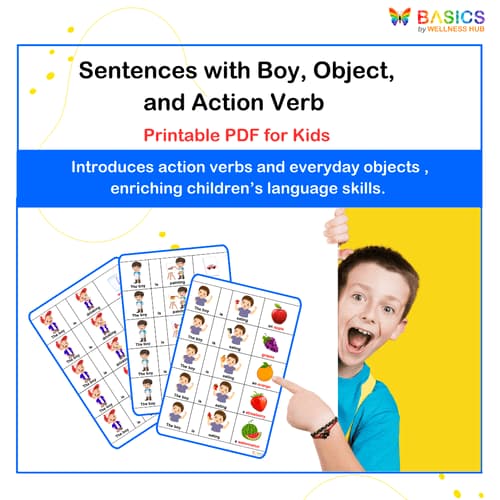
Sentences with Boy, Object, and Action Verb: Illustrated PDF for Kids
₹ 80.00
₹ 160.00
50% off
4.9 (60 ratings)
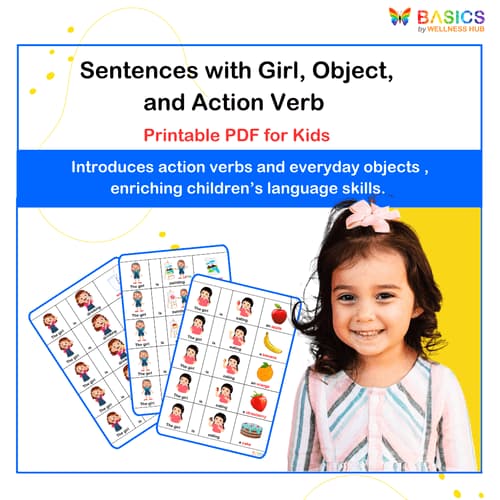
Sentences with Girl, Object, and Action Verb: Illustrated PDF for Kids
₹ 80.00
₹ 160.00
50% off
4.8 (56 ratings)
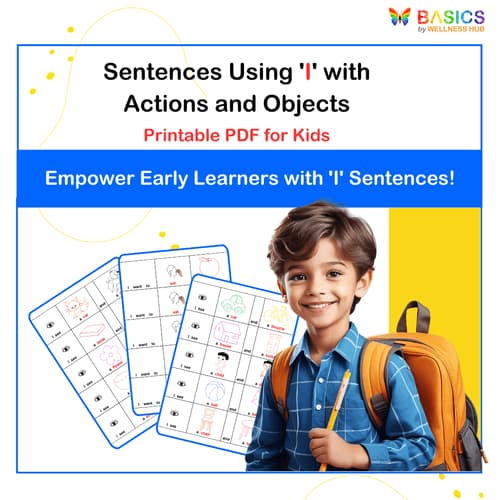
Printable Sentences Using 'I' with Actions and Objects PDF for Kids
₹ 80.00
₹ 160.00
50% off
4.7 (52 ratings)
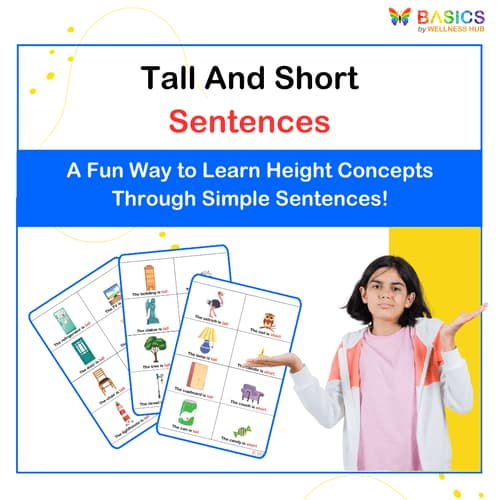
Learning Sentences with Tall and Short: Illustrated PDF for Kids
₹ 80.00
₹ 160.00
50% off
4.6 (48 ratings)
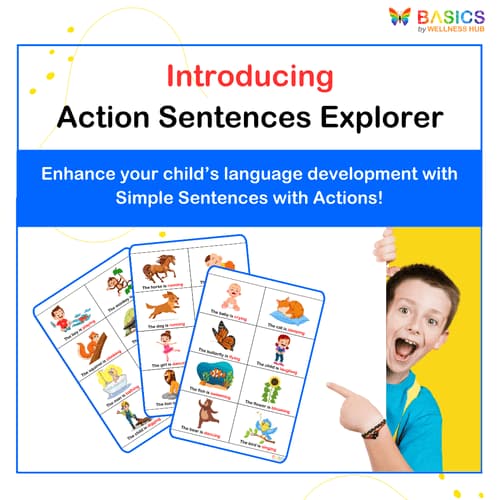
Sentences with Actions Flashcards: Everyday Activities PDF
₹ 80.00
₹ 160.00
50% off
4.9 (44 ratings)
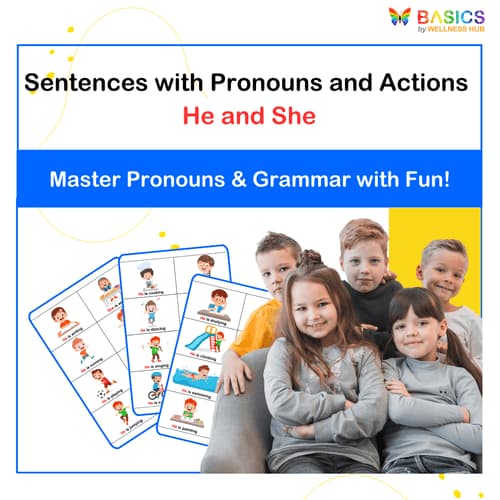
Sentences with Pronouns and Actions: He and She PDF for Kids - Free
FREE
₹160
100% off
4.8 (58 ratings)
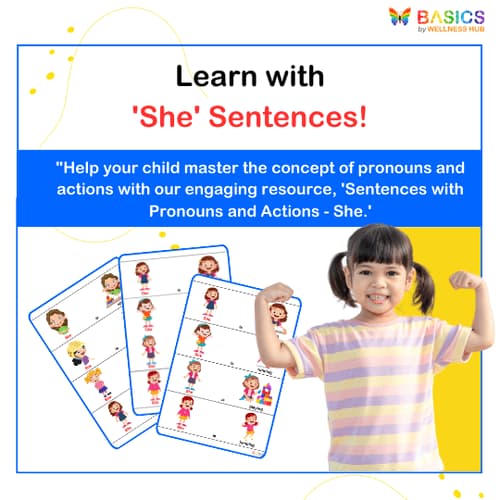
Sentences with Pronouns and Actions: She PDF for Early Learners
₹ 80.00
₹ 160.00
50% off
4.7 (54 ratings)
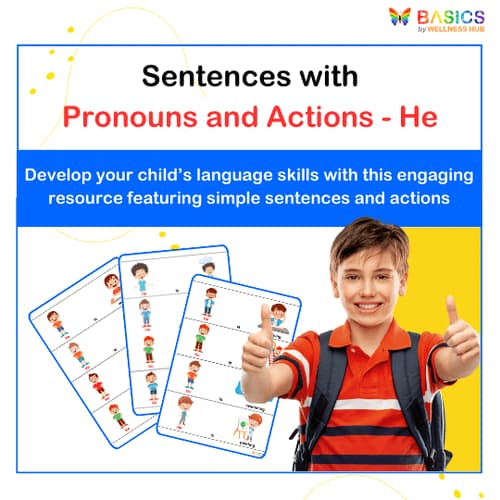
Sentences with Pronouns and Actions: He PDF for Early Learners
₹ 80.00
₹ 160.00
50% off
4.6 (50 ratings)
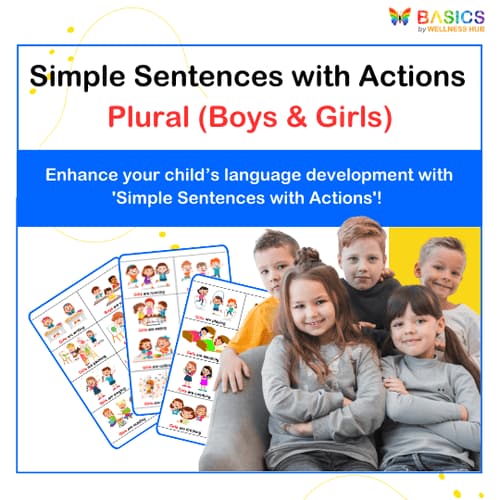
Simple Sentences with Actions: Plural Boys and Girls PDF
₹ 80.00
₹ 160.00
50% off
4.9 (46 ratings)
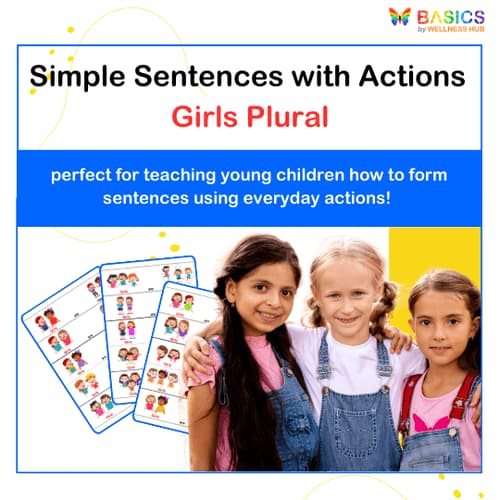
Simple Sentences with Actions: Girls Plural Free PDF
FREE
₹160
100% off
4.8 (42 ratings)
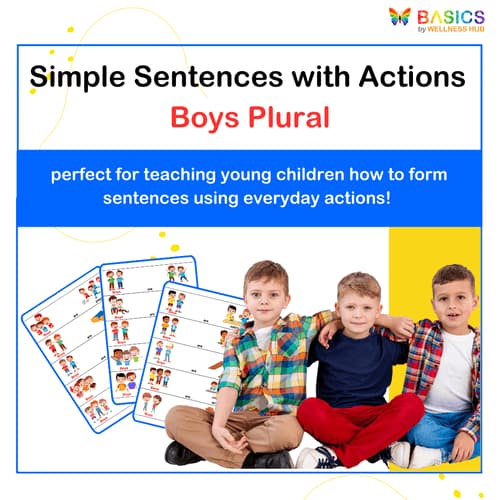
Simple Sentences with Actions: Boys Plural PDF for Kids
₹ 80.00
₹ 160.00
50% off
4.7 (60 ratings)
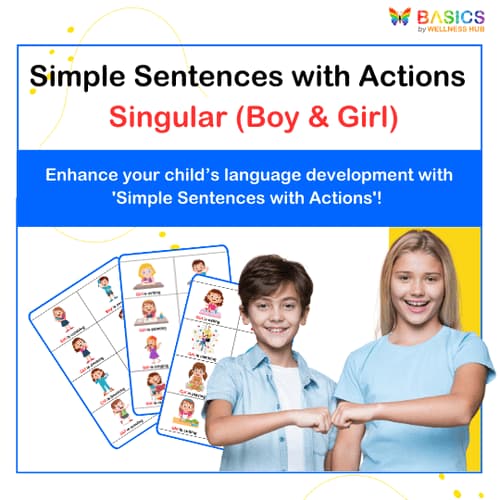
Simple Sentences with Actions: Boy and Girl Singular PDF
₹ 80.00
₹ 160.00
50% off
4.6 (56 ratings)
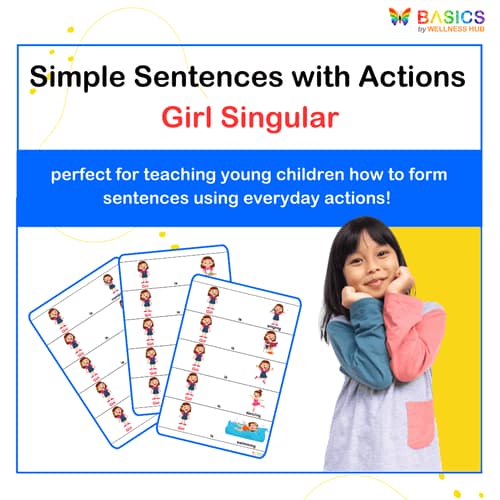
Simple Sentences with Actions: Girl Singular PDF for Kids
₹ 80.00
₹ 160.00
50% off
4.9 (52 ratings)
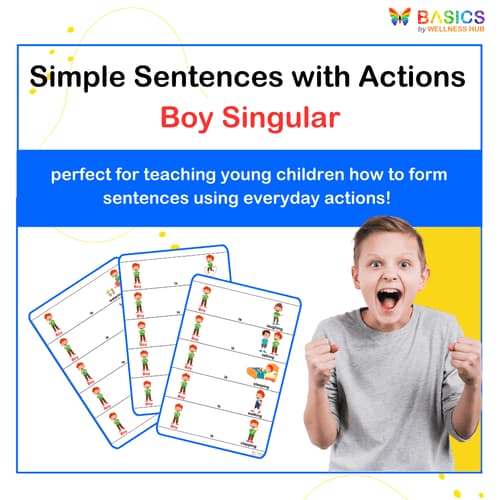
Free Simple Sentences with Actions: Boy Singular PDF for Kids
FREE
₹160
100% off
4.8 (48 ratings)
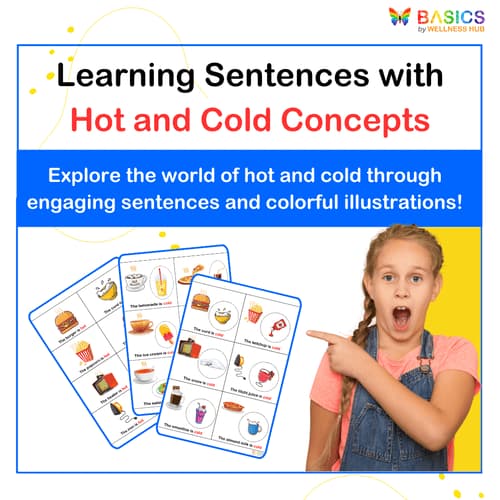
Free Learning Sentences with Hot and Cold: Illustrated PDF for Kids
FREE
₹160
100% off
4.7 (44 ratings)
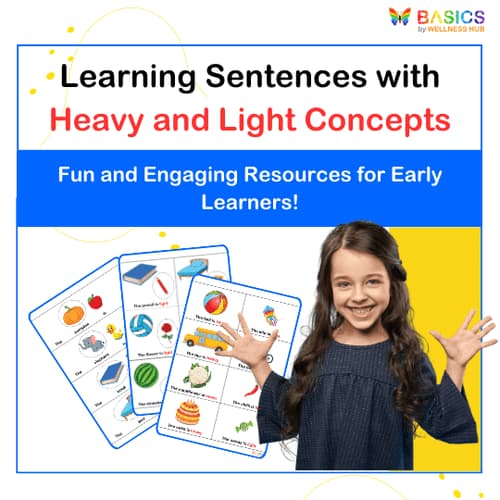
Free Learning Sentences with Heavy and Light: Illustrated PDF for Kids
FREE
₹160
100% off
4.6 (60 ratings)
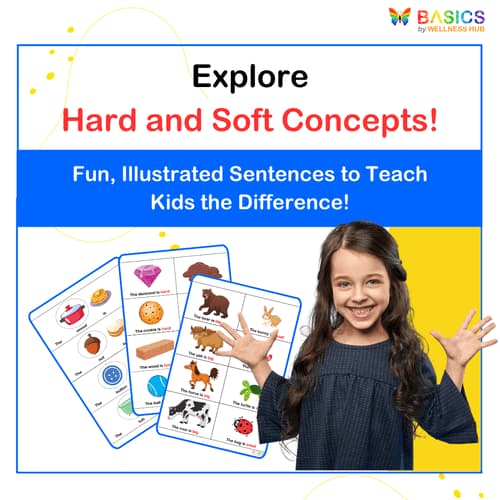
Free Learning Sentences with Hard and Soft: Illustrated PDF for Kids
FREE
₹160
100% off
4.9 (56 ratings)
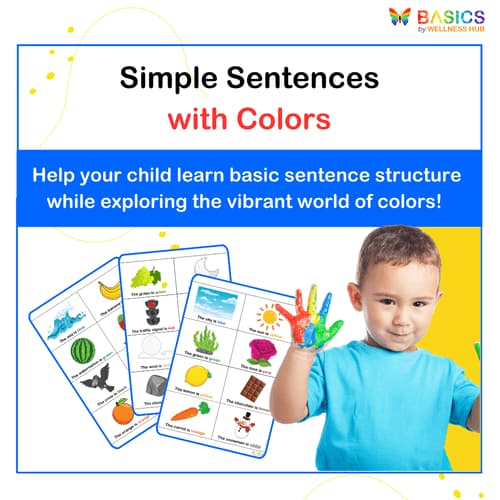
Simple Sentences on Colors: Fun Learning PDF for Kids
₹ 80.00
₹ 160.00
50% off
4.7 (48 ratings)
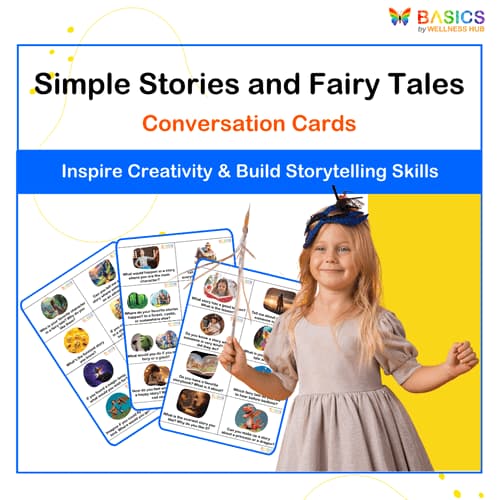
Conversation Cards - Simple Stories and Fairy Tales: Encouraging Imaginative Thinking and Storytelling
₹ 80.00
₹ 160.00
50% off
4.8 (44 ratings)
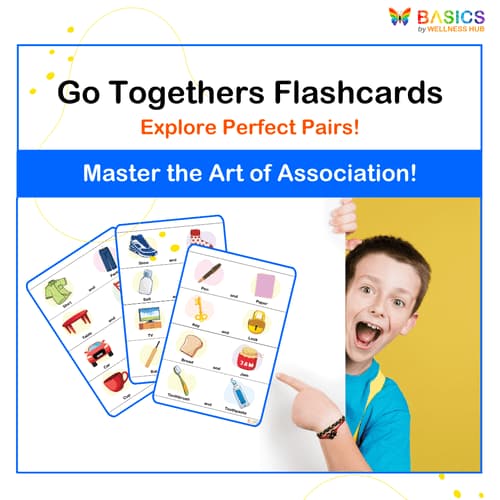
Go Togethers Flashcards: Perfect Pairs for Learning
₹ 80.00
₹ 160.00
50% off
4.6 (54 ratings)
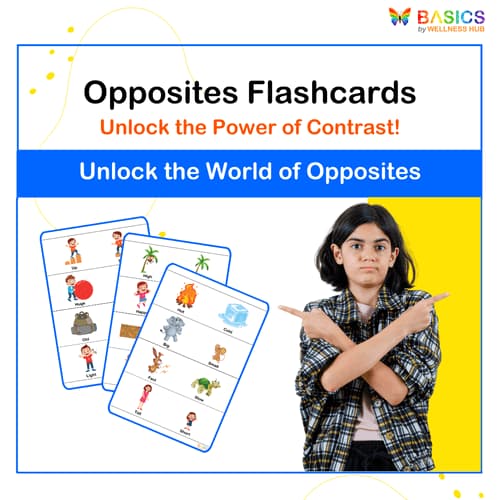
Opposites Flashcards: Learn & Discover Duality
₹ 80.00
₹ 160.00
50% off
4.8 (46 ratings)
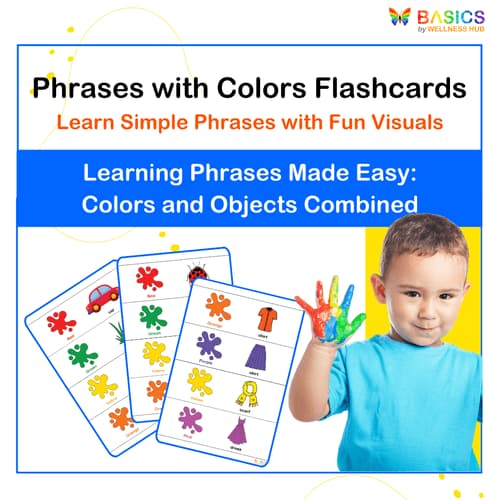
Phrases with Colors Flashcards: Learn Phrases Using Colors and Objects
₹ 200.00
₹ 400.00
50% off
4.7 (42 ratings)
Real Parent Success Stories – How Reading Skills Resources Help Kids Thrive
Our resources have positively impacted families and therapists, helping children make meaningful progress in speech and language development. Here’s what some of our users have shared:
The sight word cards have made such a difference. My son loves going through them, and he’s recognizing more words when we read books together. It’s incredible to see his confidence grow!
Emily, Parent
These testimonials reflect how our resources make speech and language learning accessible and effective, empowering children and giving parents the confidence to support their growth.
Detailed Description
Introduction to Reading Skills Resources
Reading skills are foundational for children’s academic and personal growth, opening doors to exploration, learning, and creativity. Early literacy skills such as phonemic awareness, vocabulary building, and comprehension are essential for children as they start to read and make sense of the world through words. Our reading skills resources are designed to support each stage of reading development, providing parents, educators, and therapists with structured tools that make learning to read enjoyable and achievable. These resources help children gain confidence in their reading journey, fostering a lifelong love for reading and learning.
How Our Resources Aid in Reading Skill Development
Our reading skills resources are crafted to build core literacy skills, from recognizing sounds and letters to understanding and analyzing text. Flashcards introduce phonics and sight words, reading comprehension cards support understanding of simple stories, and vocabulary-building activities promote language growth. Each resource is designed to be interactive, encouraging children to actively participate in the reading process. These tools provide children with the foundation they need to decode, understand, and enjoy reading.
Types of Reading Skills Resources We Offer
Phonics and Alphabet Flashcards: Our phonics and alphabet flashcards help children learn letter sounds and letter recognition. These flashcards introduce vowels, consonants, and phonemes in a visual, engaging way, helping children understand the building blocks of words. With regular practice, children develop phonemic awareness, which is essential for reading fluency.
Sight Words and Vocabulary Cards: Our sight words and vocabulary cards introduce high-frequency words that children commonly encounter in books. By recognizing these words on sight, children improve reading speed and comprehension. Vocabulary cards also help expand a child’s word knowledge, which is important for understanding and expressing ideas effectively.
Reading Comprehension Cards: Reading comprehension cards feature simple stories or sentences with accompanying questions that encourage children to think about what they’ve read. This activity promotes understanding, recall, and critical thinking, helping children learn to derive meaning from text and build early comprehension skills.
Sentence Building and Word Families Activities: Sentence building and word families activities allow children to practice creating sentences and understanding related words. By grouping words with similar sounds or patterns, these activities support children’s ability to decode new words, improve spelling, and build fluency. These resources are especially beneficial for children who are just starting to read or are ready to build on basic skills.
Who Can Use These Resources?
Our reading skills resources are designed to be versatile and effective for a variety of users:
Parents: Use these resources at home to support literacy skills through interactive reading activities.
Teachers: Integrate reading resources into the classroom to create a strong foundation for early reading and comprehension.
Therapists: Utilize these tools during therapy sessions for structured literacy practice, ideal for children with reading challenges or developmental delays.
These resources are user-friendly and adaptable, offering anyone working with children effective tools to build literacy skills and promote reading success.
Benefits of Reading Skills Activities at Home
Practicing reading skills activities at home offers children a comfortable, supportive environment to develop early literacy abilities. These resources help reinforce the connection between spoken and written language, supporting phonics, vocabulary, and comprehension. For children with specific reading challenges, such as dyslexia or developmental delays, these activities offer structured, repetitive practice that strengthens decoding, fluency, and understanding. By incorporating reading into daily routines, parents can instill a love for reading and set their children up for academic success.
Tips for Using Reading Skills Resources Effectively
Utilizing our reading skills resources effectively can set a strong foundation for your child’s literacy journey. Here are some practical tips:
Start with Phonics and Sight Words: Begin by introducing phonics and common sight words to build confidence. Practice letter sounds and recognition before progressing to more complex vocabulary.
Make Reading a Daily Routine: Incorporate reading activities into your daily schedule. Consistent, short reading sessions help reinforce skills and maintain your child’s interest in learning to read.
Use Interactive and Engaging Techniques: Engage your child by making reading interactive. Ask questions, encourage them to describe pictures, and allow them to choose reading materials they enjoy, such as flashcards or simple storybooks.
Reinforce with Real-Life Connections: Point out words in your environment—such as labels, signs, and packaging—to show your child that reading is all around them. This helps them see reading as a practical, everyday skill.
Celebrate Milestones and Progress: Celebrate each achievement, no matter how small. Acknowledging your child’s progress in reading builds confidence and keeps them motivated to learn.
Real-Life Examples of Reading Skills Development with Our Resources
Our reading skills resources provide practical, engaging ways for children to practice and enhance their literacy. Here are some examples:
Building Vocabulary with Sight Word Cards: A parent might use Sight Word Cards during reading time, encouraging the child to recognize and say each word aloud. By repeatedly seeing and practicing high-frequency words, the child gains reading fluency and confidence, making them more comfortable with common words in stories.
Practicing Phonics with Alphabet Flashcards: A teacher might introduce Alphabet Flashcards in the classroom, encouraging students to connect each letter with its sound. By reinforcing phonics through repeated practice, children become better equipped to sound out new words independently.
Enhancing Comprehension with Reading Cards: A therapist working with a child on reading comprehension may use Reading Comprehension Cards. After reading a simple story, the child answers questions to test their understanding. This promotes recall, comprehension, and the ability to analyze text.
Developing Sentence Structure with Word Families: Using Word Family Activities, parents can show their child how words with similar sounds are grouped together, helping them recognize patterns. By practicing sentence building, the child learns how words connect to form sentences, strengthening their reading and writing abilities.
These examples demonstrate how our resources can support vocabulary, phonics, comprehension, and overall reading fluency in fun, interactive ways.
FAQs
Q1: How do I start using these resources with my child?
A1: Begin with phonics flashcards or sight word cards to introduce basic sounds and high-frequency words. Start with short, regular sessions and gradually introduce more complex activities like reading comprehension cards.
Q2: Which resources are best for building vocabulary?
A2: Our Sight Words and Vocabulary Cards are ideal for building vocabulary, as they introduce commonly used words that children frequently encounter in books and daily life.
Q3: How often should I use these activities?
A3: Consistent practice is key. Aim for short, daily sessions—about 10–15 minutes—to keep your child engaged without overwhelming them. You can increase the duration as your child becomes more comfortable.
Q4: Are these resources suitable for children with reading challenges, like dyslexia?
A4: Yes, our resources are designed to support all reading levels. For children with reading challenges, we recommend starting with phonics and sight words, building gradually, and repeating activities for reinforcement.
Related Topics and Further Learning for Parents
For parents interested in additional reading support, the BASICS app offers a variety of courses and resources that can further aid in literacy development:
Phonics Fundamentals for Early Readers: A course that covers phonemic awareness, helping children understand letter sounds and begin decoding words.
Building Vocabulary for Young Readers: Resources and activities focused on vocabulary expansion, including strategies for introducing new words and promoting word recognition.
Reading Comprehension Strategies: Guidance on supporting children in understanding text, with activities that build comprehension, recall, and inference skills.
Supporting Children with Dyslexia and Reading Challenges: Specialized tools and courses that provide strategies for helping children with dyslexia and other reading difficulties succeed in their literacy journey.
These resources offer parents a comprehensive approach to reading development, empowering them to support their child’s growth with confidence and ease.